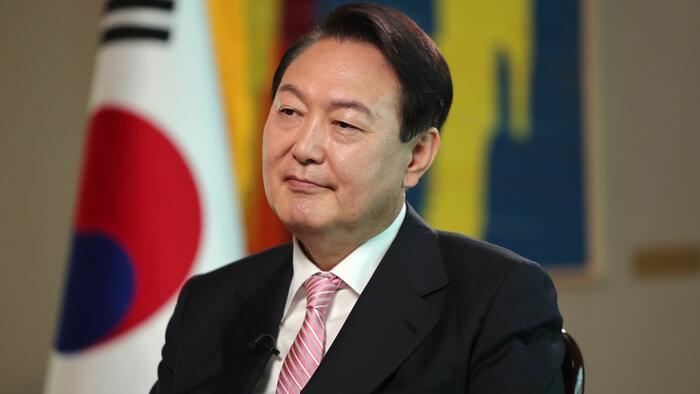South Korean President Yoon Suk Yeol is currently deliberating on the possibility of providing military arms directly to Ukraine. This comes in light of reports indicating that North Korea has dispatched around 10,000 troops to Russia, preparing to engage in the ongoing conflict against Ukraine. Traditionally, South Korea has been cautious about supplying weapons to Ukraine, opting instead to contribute through non-lethal assistance. However, the escalating military cooperation between North Korea and Russia may prompt Seoul to reconsider its stance. Yoon’s administration is contemplating supplying essential military resources, specifically 155mm artillery shells, as a response to the North Korean troop deployment. Currently, this type of support has only been provided indirectly by channeling supplies through the United States.
In recent developments, President Yoon has expressed his unwillingness to remain passive regarding the North Korean military actions. His office has announced plans for a delegation to visit Ukraine aimed at monitoring North Korean forces in the region, following a conversation with Ukrainian President Volodymyr Zelenskyy. While the prospect of military support seems to be gaining traction within certain government circles, it faces significant opposition domestically. The left-leaning Democratic Party, which holds a parliamentary majority, has been vocal in its disapproval. Party leader Park Chan-dae criticized the idea of arming Ukraine, claiming it puts human lives at risk and likening it to using people as pawns in an international conflict.
Park Chan-dae further cautioned President Yoon against involving South Korea in a proxy war, warning it could heighten tensions and provoke military conflict on the Korean Peninsula. Interestingly, the South Korean public and political landscape remains divided on the issue of military support for Ukraine. On the legal front, significant obstacles also exist. South Korea’s Defense Procurement Act and Foreign Trade Act currently prohibit the export of arms and ammunition to Ukraine, necessitating legislative changes for any form of military support to be viable.
This internal debate surrounding military support for Ukraine has been ongoing, first introduced in discussions back in July 2023 and earlier in April 2022. Although some factions within the government show a willingness to provide arms, the likelihood of a swift transformation in policy appears limited. Additionally, Ukraine is still awaiting the delivery of K600 mine-clearing tanks as part of a previous commitment from South Korea, indicating a degree of indecision in South Korea’s approach to military assistance.
In the broader context, Ukrainian President Zelenskyy has recently articulated a growing concern regarding what he identifies as a coalition of adversaries aligned against Western interests. This coalition includes Russia, Iran, and North Korea, all of which are seen as working to undermine NATO and its allies. Zelenskyy’s emphasis on this perceived alliance underscores the geopolitical ramifications of North Korea’s military actions and their potential implications for global security dynamics.
Moreover, Western nations are generally hesitant to support Ukraine’s calls for extended military measures, such as authorizing long-range missile strikes into Russian territory. Russian President Vladimir Putin has issued warnings that such an escalation would breach significant ‘red lines’ and could lead to severe repercussions. As South Korea grapples with these complex regional tensions and its own legislative barriers, the discussions surrounding military aid to Ukraine are poised to remain a contentious topic in the nation’s political discourse. This situation reflects an intricate interplay of domestic and international considerations that will continue to shape South Korea’s defense policy moving forward.

